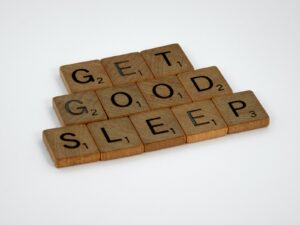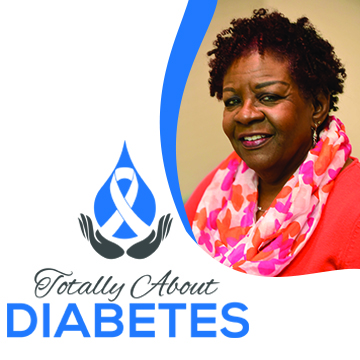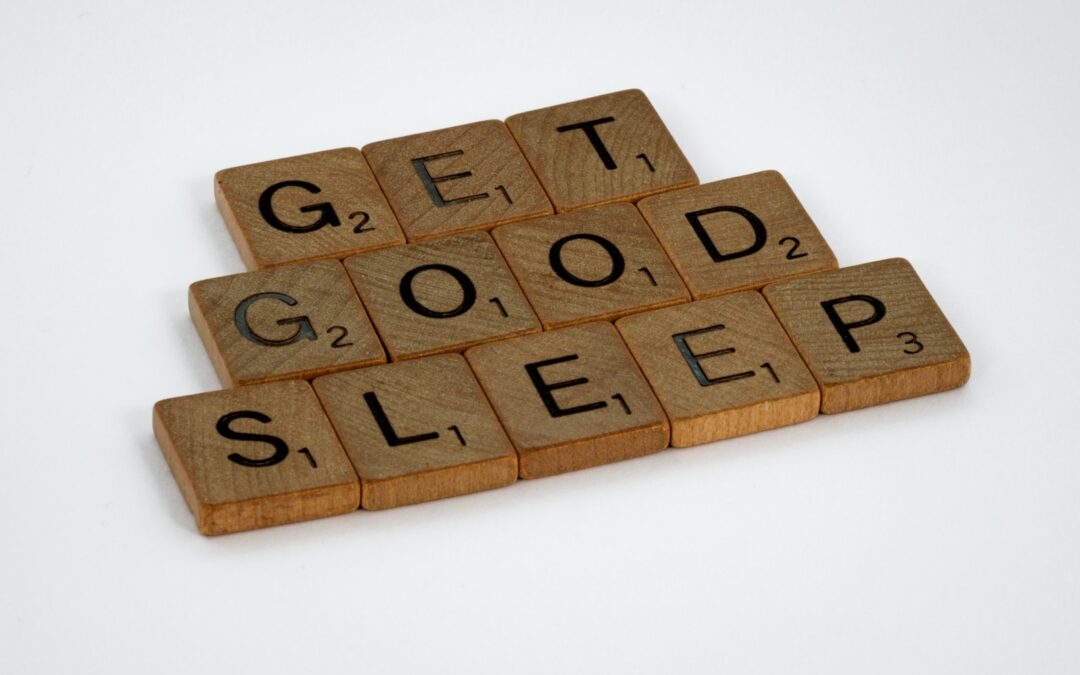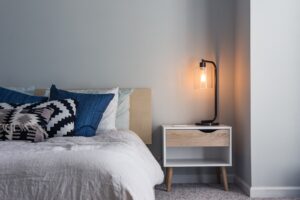
Get good sleep
Lifestyle Behavior Change
Lifestyle behavior change are actions taken by people that will affect their health and mortality.
5 Pillars of Behavior Change
- Mindset
- Nutrition
- Exercise
- Sleep
- Stress
Sleep is one of those lifestyle behaviors that is overlooked or neglected. Many do not see sleep as being important or vital to their health.
Why is sleep so important?
Sleep is the body’s way of rebooting and resetting. A good night’s sleep is vital for optimal functioning for the next day. Many body functions occur during sleep. The cells are able to rejuvenate during sleep. Hormone production and synthesis occurs at night. Thought processes and memory are improved after a good night’s sleep. Healthy sleep is 7-8 hours of uninterrupted restful sleep. One should feel rejuvenated and refreshed, ready to tackle the day when they wake up.
What does a good night’s sleep look like?
For an adult, the goal is to get 7-9 hours of sleep per night. There are 5 stages of sleep. The stages are consecutive and get progressively longer each cycle. Normal sleep consists of 4-5 cycles per night. 13 – 23% should be deep sleep. Each cycle last 90-110 minutes.
The Stages of Sleep
Being awake is a stage of sleep
- Wake – time varies on how it takes for one to fall asleep.
- Stage N 1 – Light sleep 5%
- Stage N 2 – Majority of sleep 45% . Deeper sleep. 25 minutes in the 1st cycle and gets longer each cycle. This is the stage where teeth grinding occurs
- Stage N 3 – This is the deep non REM stage. Accounts for 25% of sleep. Most difficult stage to arouse; if aroused there will be mental fogginess. This stage decreases with aging. Body repair occurs, tissues regrow, immune system strengthen, bone and muscle grow and strengthen at this stage. Sleepwalking can occur, night terrors, and bedwetting happens during this stage.
- REM – This is the dreaming but not restful period. This stage occurs about 90 minutes after falling asleep. The 1st cycle last 10 minutes and the final cycle can last one hour. Dreaming, nightmares, and sexual arousal occur during this time. The brain is highly active during REM.
Where you sleep is important
A calm, peaceful environment is essential good quality sleep. A room that is too warm, too cold, too noisy, or too much light does make a conducive sleep atmosphere. For some people, some level of noise may be needed. “White noise” such as a machine or low calming music may help with sleep.
Comfortable nice bedding, suitable mattress, and minimal clutter promotes healthy sleep.
How you sleep is important, too.
It is important to calm your mind down before going to bed. A busy brain does not promote healthy sleep. Technology such as smartphones, computers, and tablets emit lights that increase brain activity. So it is best to have a shutdown time for technology, 2 hours before bedtime. Most look at TV late at night. TV’s emit the same light as the other techology devices. Shutting down TV 1-2 hours before bed prepares the brain for sleep. If you cannot turn off the TV, wear blue blocking glasses. Personally, this time of year is difficult for me because it is football season. I am a football fanatic and want to see the games to the end.
Calming busy thoughts can be counteracted by journaling, listening to calm music, relaxing bath, or reading a relaxing book. Meditation and prayer are methods to help calm a busy troubled mind. 
Sleep Problems
Insomnia
There are different types of insomnia. Problems falling asleep, waking up during the night and unable to go back to sleep, or ineffective sleep. Ineffective sleep is sleeping all night but tired when waking up.
Lack of sleep affects memory and ability to think clearly. It affects about 30% of the population. As aging occurs, less deep sleep occurs.
Sleep apnea is another cause for sleep deprivation. Impaired sleep and sleep deprivation can lead to decreased alertness and attention. Sleep deprivation leads to trouble learning and forming new memories. Hormone disruption occurs with sleep impairment. One of those hormones affects cravings for high calorie foods. 
Chronic insomnia is a cause of impaired memory. Prolonged impaired memory leads to a higher risk of dementia. Addressing the problem of insomnia can be a big step in prevent or avoiding dementia.
Causes for Insomnia
One can have too many things on their mind. It’s like having a cluttered desk. It is hard to get anything accomplished. (note to self to clean my desk.) Eating too much or too late before going to bed. The food needs to digest, so the digestive process interferes with the sleep process. One will be unable to get into the deep sleep phase because of digestion.
Many people like to have a night cap or a drink before bed but the alcohol can interfere with the sleep and rest cycle.
We discussed the issue of electronics and TV in the previous paragraph.
An Unspoken Problem
Here are some things not typically discussed in sleep teachings. One problem that can interfere with sleep is your bed partner. If you have a partner that snores or talks in their sleep or acts out their dreams can interfere with your sleep. This problem can be addressed by talking with your partner and making them aware of it. You can share some of these tips that may help decrease the problems.
Another factor that impede or interfere with sleep is cold feet. Yes, cold feet can be uncomfortable and interfere with falling asleep. Studies have shown that wearing bed socks warm feet and promote restful sleep. The socks need to nonbinding and low cut to prevent problems with circulation.
Insomnia Treatments
Developing healthy habits is essential for healthy sleep.
- Set regular bedtime – aim for 7 – 9 hours of sleep.
- Try not eat 3 hours before bed
- Turn off electronics one hour before bedtime – no TV, cell phone, computer use.
- Journal/writing for release of thoughts
- Soft music to promote rest and sleep or white noise
- Avoid alcohol use before bed
- Adjust room temperature – comfortable for sleeping
- Darken room, quiet environment
- Bathe or shower using lavender or other soothing scents.
- Add Epsom salt in bath water. Epsom salt is a form of Magnesium that promotes muscle relaxation
- Nasal breathing strips prevent sleep apnea
Sleep aids and supplements
Magnesium glycinate comes in a capsule or powder. This form is great for promoting relaxation and sleep.
Magnesium threonate is a different form of magnesium that works on the brain. It increases magnesium levels in the brain that will lead to improved brain function and decrease anxiety.
Nasal breathing strips benefit people that have nasal congestion or snoring. The strips help by opening up the nasal airway and lessen mouth breathing. The strips can be an economical trial before having a sleep study.
Yes, sleep is that important!
I hope this blog shows the importance of sleep and how one can have a healthy sleep. Lifestyle behavior changes can be very effective in improving sleep habits. There are a few product recommendations that can be tried in case some additional aids are needed. Let me know if this has been helpful to you. I invite your comments.
This post contains affiliate links. If you use these links to buy something we may earn a commission. Thanks.




Recent Comments